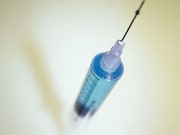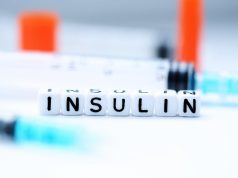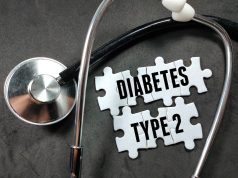Findings seen in prespecified analysis; alirocumab did not increase risk for new diabetes
TUESDAY, July 16, 2019 (HealthDay News) — Among those receiving alirocumab in addition to statin therapy to reduce the risk for another cardiovascular event after a recent acute coronary syndrome, absolute risk reduction is greater for those with diabetes, according to a study published online July 1 in The Lancet Diabetes & Endocrinology.
In a prespecified analysis of data from the ODYSSEY OUTCOMES trial, Kausik K. Ray, M.D., from Imperial College London, and colleagues assessed the effects of the PCSK9 inhibitor alirocumab on cardiovascular outcomes by baseline glycemic status (diabetes, prediabetes, or normoglycemia) plus its effects on glycemic measures, including new-onset diabetes. Participants had been admitted to the hospital with an acute coronary syndrome (myocardial infarction or unstable angina) one to 12 months before being randomly assigned to alirocumab or placebo. Follow-up occurred during a median of 2.8 years.
The researchers found that the incidence of the primary end point (composite of death from coronary heart disease, nonfatal myocardial infarction, fatal or nonfatal ischemic stroke, or unstable angina requiring hospital admission) was higher among patients with diabetes in the placebo group (16.4 percent) compared with patients with prediabetes (9.2 percent) or normoglycemia (8.5 percent; hazard ratio for diabetes versus normoglycemia, 2.09 [95 percent confidence interval, 1.78 to 2.46]; hazard ratio for diabetes versus prediabetes, 1.90 [95 percent confidence interval, 1.65 to 2.17]). While similar relative reductions in the incidence of the primary end point were seen for each glycemic category, there was a greater absolute reduction in the incidence of the primary end point with alirocumab in patients with diabetes versus those with prediabetes or normoglycemia. Alirocumab did not increase the risk for new-onset diabetes (hazard ratio, 1.00; 95 percent confidence interval, 0.89 to 1.11).
“After a recent acute coronary syndrome, alirocumab treatment targeting an LDL (low-density lipoprotein) cholesterol concentration of 0.65 to 1.30 mmol/L produced about twice the absolute reduction in cardiovascular events among patients with diabetes as in those without diabetes,” the authors write.
Several authors disclosed financial ties to pharmaceutical companies, including Sanofi and Regeneron, which manufacture alirocumab and funded the study.
Copyright © 2019 HealthDay. All rights reserved.








